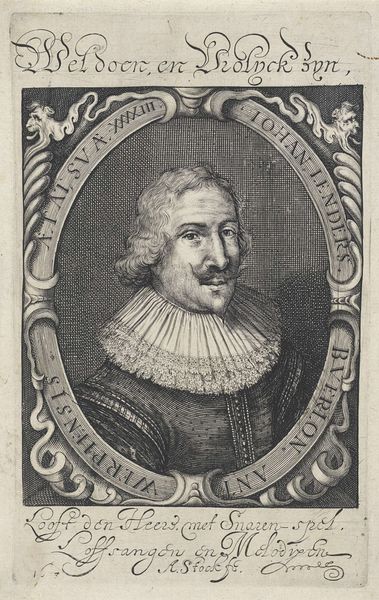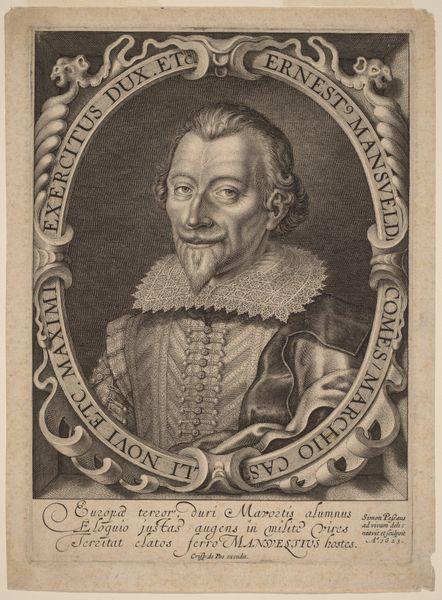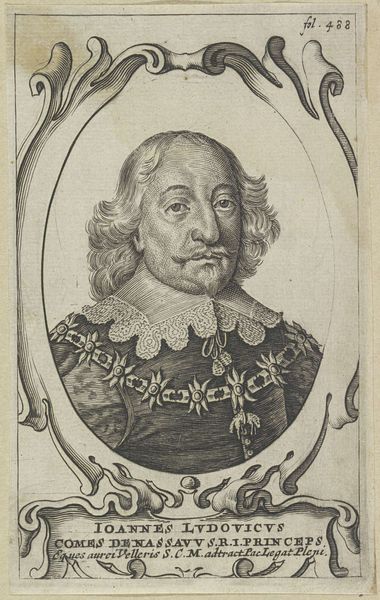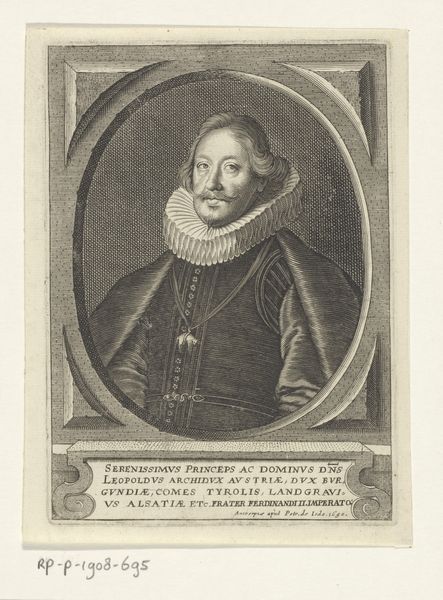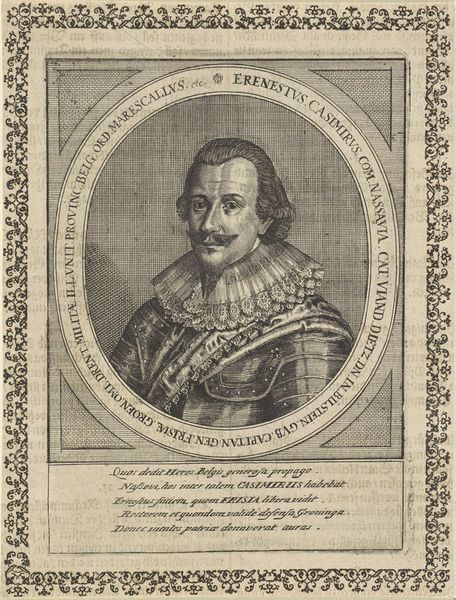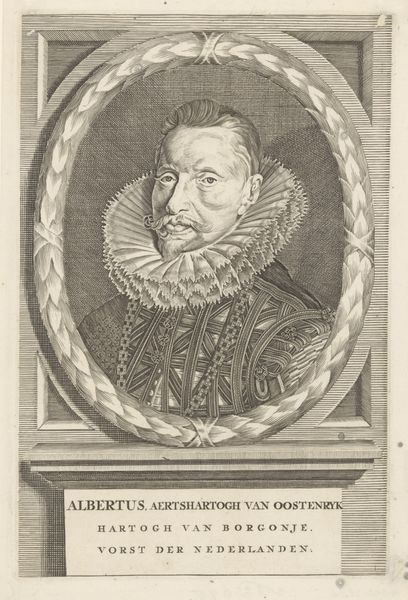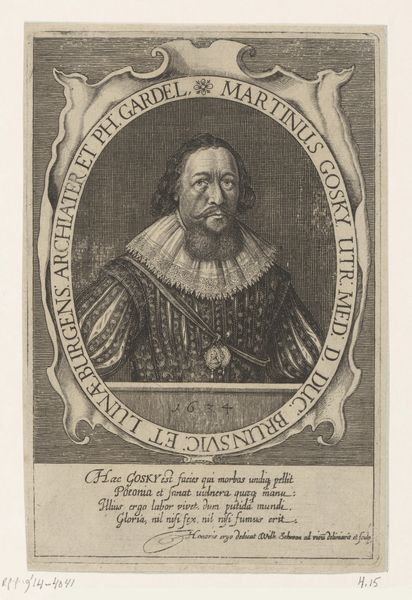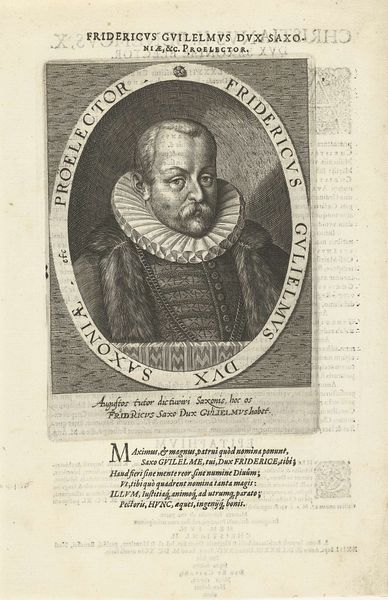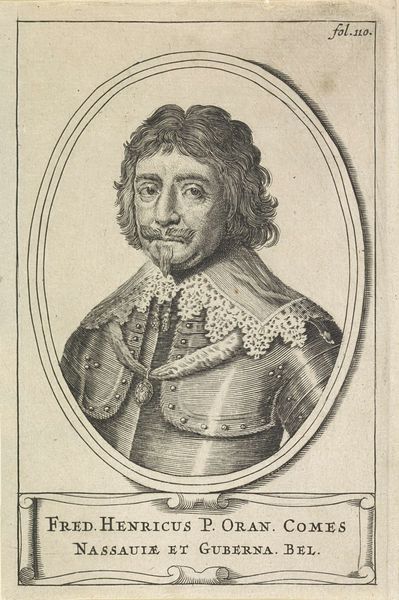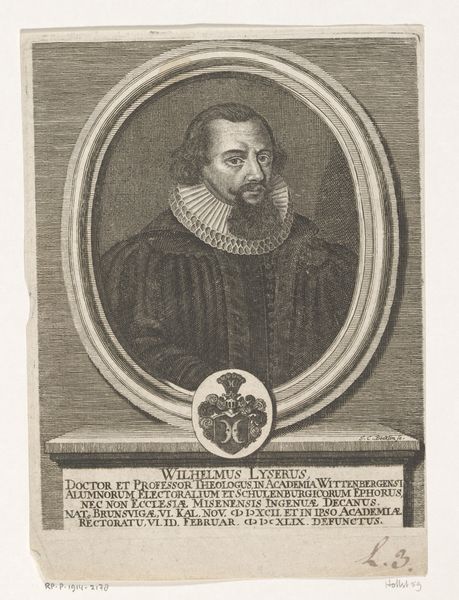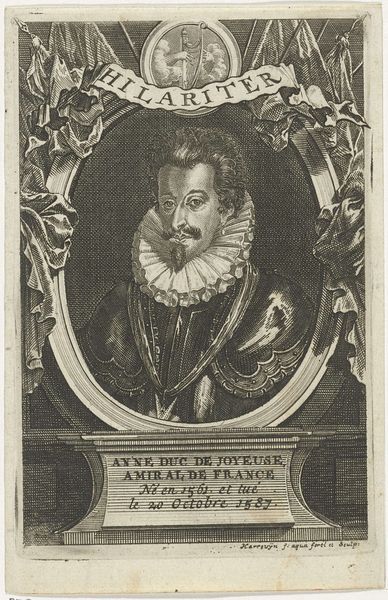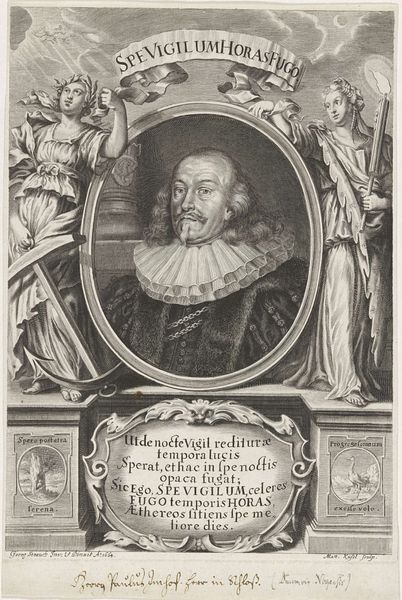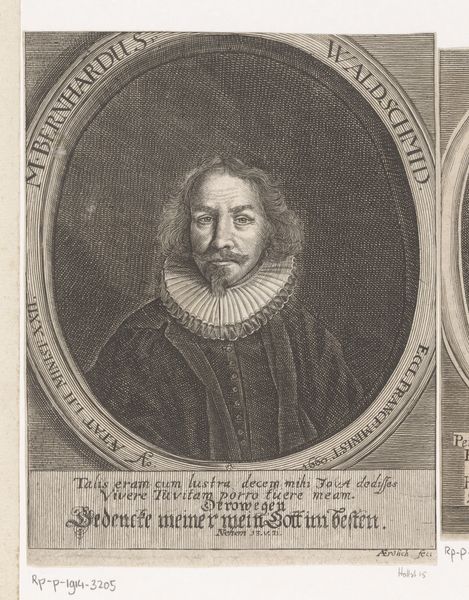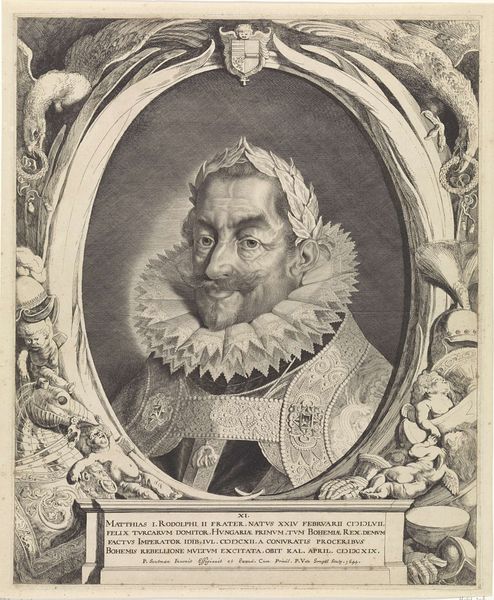
print, engraving
#
portrait
#
baroque
# print
#
old engraving style
#
portrait drawing
#
history-painting
#
engraving
Dimensions: height 158 mm, width 107 mm
Copyright: Rijks Museum: Open Domain
This print, “Portret van Johann graaf van Aldringen”, was made in 1628 by Paul de Zetter, using engraving. The image is achieved by meticulously cutting lines into a metal plate with a tool called a burin. Ink is then applied to the plate, and the surface is wiped clean, leaving ink only in the incised lines. Finally, paper is pressed against the plate, transferring the image. The result is a dense network of lines that creates a sense of volume and texture. Look closely, and you can see how de Zetter varies the thickness and density of the lines to create subtle gradations of light and shadow. It’s a labor-intensive process, demanding great skill. Engraving like this was crucial for disseminating images in the early modern period, allowing portraits and other likenesses to be reproduced and shared widely. Think of it as a kind of social media of the 17th century, only with a lot more work involved. The high level of skill and labor intensity involved in this print speaks to the hierarchies of labor and artistic production of its time.
Comments
No comments
Be the first to comment and join the conversation on the ultimate creative platform.
